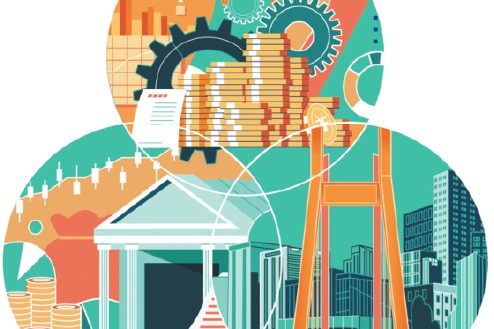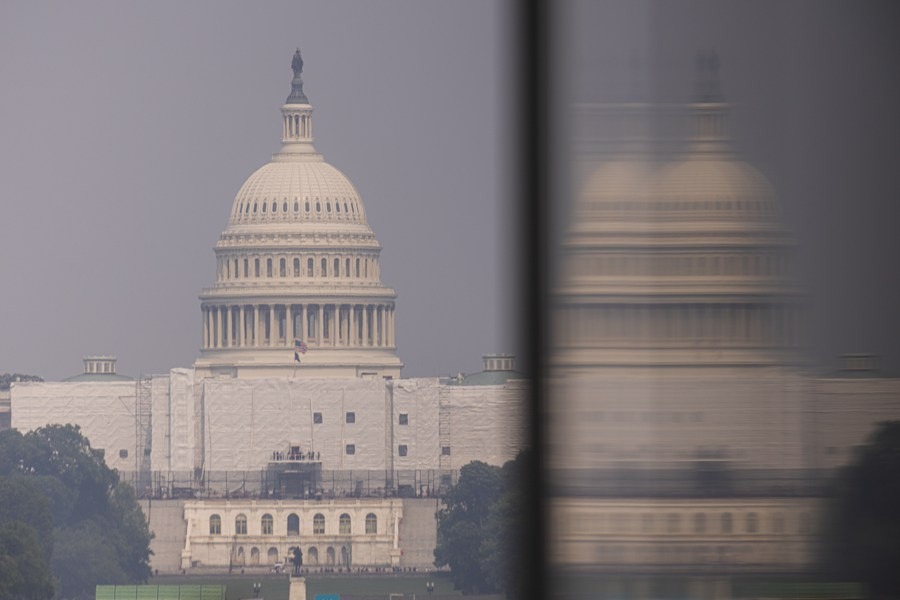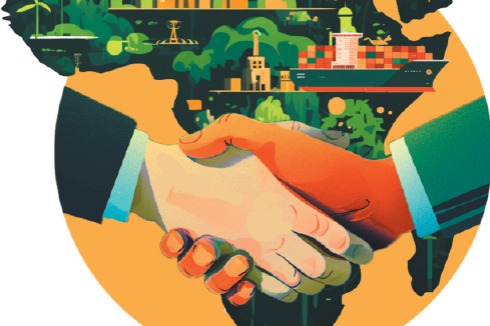Japan has much that it can learn from lessons of history: China Daily editorial


The only lesson some Japanese politicians seem to have learned from history is that they don't need to learn anything from it.
On Thursday, the 79th anniversary of the end of World War II, three Japanese Cabinet ministers visited the Yasukuni Shrine in Tokyo, where convicted war criminals of the country are among the honored dead. Prime Minister Fumio Kishida sent an offering.
Those politicians putting on their show at the shrine displayed exactly the same victim mentality that their colleagues conveyed at the commemorative ceremonies last week marking the 79th anniversary of the nuclear bombs dropped on Hiroshima and Nagasaki.
The Japanese government has promoted that mentality in the country, particularly over recent years, to try and relieve the nation of its historical burden and also justify its attempts to "normalize" the country via its militarization. But that self-cheating game has its weak point as the politicians cannot explain why a "victim" of the war is subject to a series of restrictive measures preventing it from having a full-fledged military.
So almost every year when Japanese politicians pay their ritual visits or present their ritual offerings to the shrine on the so-called Japan surrender day, or victory day in the countries that resisted its invasion but the end of war day in Japan — they just perform a Japanese version of The Truman Show for the rest of the world.
Notably the Yasukuni performance this year comes a day after Kishida surprised many by announcing he would not run in his ruling party's leadership race next month, ending his three-year term as prime minister. Although he explained that move by saying he was taking responsibility for a recent party slush funds scandal, the shock that his announcement has caused at home and abroad speaks volumes of how far-fetched the excuse he found to justify the move appears to most people.
Although Kishida is seen as a dovish moderate within the conservative Liberal Democratic Party, as he has refrained from visiting Yasukuni in person since becoming prime minister in 2021, he not only sent offerings instead on the war anniversary every year, but more importantly the Japanese government under his leadership has adhered to a one-sided pro-United States diplomacy taking advantage of Washington's China-containment strategy to accelerate Japan's de facto re-militarization even before completing the necessary constitutional amendment.
Some observe that it is the rising uncertainties in the US election that have prompted Kishida to make the decision to avoid a knotty situation in which his government that has followed in earnest the Joe Biden administration's anti-China policy will be left high and dry if the US' China policy changes along with the change of the White House occupant.
That might be a factor but it is the lasting deflation of the Japanese economy that has only been aggravated during Kishida's regime that has become the last straw breaking the back of the camel. Kishida's specious "new capitalism" economic policy stresses wealth distribution, mainly to quell public anger, and consumption and investment, rather than production and innovation.
And the economic woes should also be seen as the collateral damage of his lopsided diplomacy. Not only has Japan's trade with and investment in China been substantially affected with the Kishida government enthusiastically toeing the US' line, but also the rocketing defense spending, which is also to cater to the US' needs, has forced the Kishida government to issue more national bonds, which will naturally lead to further deterioration of the fiscal environment and aggravate the deflation.
Things are unlikely to improve after Kishda leaves office. Shigeru Ishiba, former LDP secretary-general and member of the House of Representatives of Japan, who is reportedly likely to succeed Kishida next month upon the latter's stepping down, visited Taiwan island and met with its leader Lai Ching-te and others in defiance of the one-China principle being a political foundation of Sino-Japanese relations and the Taiwan question a redline concerning China's core interests.
Yasukuni means "peaceful country" in Japanese. But for that to be apt, Japan needs to reflect on the lessons of history.
































